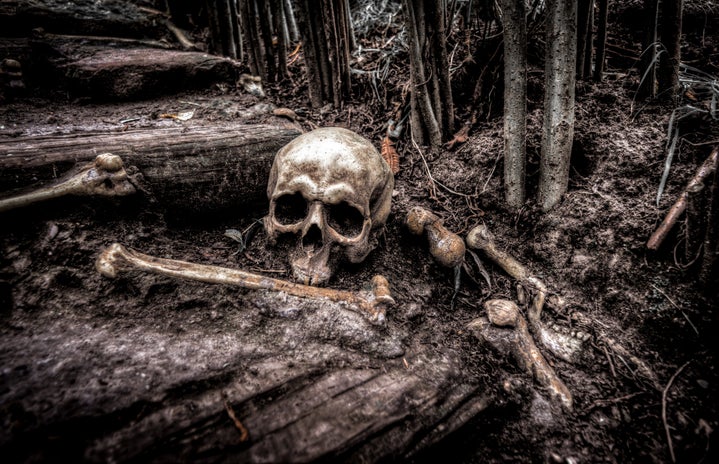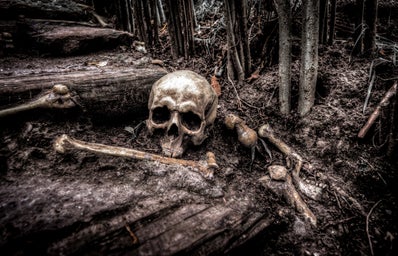Edited by: Mihir Khanna
If I really like a piece of media and obsessively analyse it, picking apart its nuances and scouring the Internet for fan theories, chances are- it belongs to the dystopian genre. I just really like watching shows about societies characterized by oppressive control, often portraying a bleak future with societal, political, or environmental issues. It delves into the darker aspects of human nature and the consequences of unchecked power.
I think the dystopian genre is a reflection of the anxieties of a current generation, and what extremities they see rising in their society. There are, of course, classics like 1984 which are more universal. Elements such the crackdown of freedom of speech and expression, totalitarian control, the suppression of political power and the breakdown of communities terrify everyone, irregardless of the time period they were born into. But more than just this, this genre can provide an escapist medium that simultaneously allows us to introspect about the state of the world we live in, or rather the one way we are rapidly heading to if course is not corrected.
While this genre is vast and envelops a diverse umbrella, a few aspects of dystopias remain consistent. These are the hallmarks, in my opinion.
- Authoritarian Rule: Dystopian narratives frequently focus on societies governed by oppressive regimes, showcasing a pervasive and often dictatorial control that stifles individual freedoms through surveillance, propaganda, and manipulation.
- Social Disintegration: Within dystopian worlds, social structures crumble, and conventional norms erode. This deterioration manifests in the dehumanization of individuals, erasure of personal autonomy, and a pervasive sense of societal decay.
- Apocalyptic Catalysts: Dystopias often arise from catastrophic events, whether environmental disasters, technological calamities, or nuclear conflicts. These cataclysmic occurrences contribute to the harsh and inhospitable environments that shape the narratives and challenge the characters.
Here is a list of my favourite dystopian works- some of which are classics everyone knows about as well as underrated gems.
- Years and Years
An underrated and truly horrifying show, this short British series centres around a middle class family in the United Kingdom living through tumultuous societal changes. Exploring the impact of war, immigration, climate change, nuclear disasters, economic collapses, fraught international relations and more, I like this show because it is different from most dystopian tales due to its microscopic focus. By exploring the events of the world through the eyes of ordinary citizens, in a society that has the same history as ours until 2019, they feel way more real. The changes that occur in the series feel probable. While it may not be as provocative and glamorous as some other dystopian shows, it’s truly mesmerising how the creator has succinctly analysed the worst-case scenarios for some of the extremities that press on us today. It feels very real and is a must watch
2. Black Mirror
I did say I would put in some popular classics. This Netflix anthology series, which has six seasons, has different themes and characters every episode. However, they all centre on a similar question: what is the impact of technology on our world? Sometimes technology is the main thing driving a plot, sometimes it’s the backdrop through which the dark side of human nature is explored. Not all Black Mirror episodes are horrifying, some are hopeful. However, most explore the cost of humanity being so dependent on technology and themes like surveillance, AI and control. Some of my favorite episodes include San Junipero, Be Right Back, Hang the DJ, Beyond the Sea, Striking Vipers and Black Museum. But honestly, they’re all good.
3. Psycho Pass
This is an anime that I watched a long time ago and just stays with me. In the future, Japanese society runs based on an AI called the Sibyl System which classifies people into good or bad. People are assigned careers by the Sibyl System based on their traits and the society is stable. Our protagonist, Akane Tsunemori, is a borderline genius by Sibyl standards because she has a low score- which means she can choose any career. She decides to be an Inspector assigned to the Criminal Bureau. Over the course of the series, Akane examines the social and ethical underpinnings of the Sibyl System’s governance of Japan and her own idealistic values. Another one of my favorite characters is Shinya Kogami, an Enforcer (Enforcers have high Psycho Pass scores and are latent criminals who help the Inspectors). This is a must-watch for sure.
4. 1984
While this isn’t the most impressive storywise, its impact on the genre and the world at large cannot be understated. It is a masterpiece. Throughout its narrative, the novel scrutinizes the consequences of an all-encompassing surveillance state and the manipulation of truth. Orwell’s masterpiece delves into the themes of control, highlighting the dark facets of human nature intertwined with the pervasive influence of oppressive technology. While it maintains a somber tone, “1984” occasionally reveals glimpses of resilience and rebellion, prompting contemplation on the delicate balance between individual autonomy and the power of an overarching authority. There’s a reason terms like Orwellian are thrown around in everyday conversation- this novel was iconic and cemented itself as a literary classic.
These are some of my favourites. They are terrifying, because they resonate with the fear we have. Among modern alienation, disconnect, loneliness- among the wretched economy and inequalities we face- there is the morbid realisation that we may be heading for a dystopia ourselves. As we watch and read these stories, maybe we should reconsider introspecting on how we live.
Anyways, back to the non-deep. Have fun watching or reading. (Yes, this is another excuse to procrastinate on your assignments.) Good luck for finals week. We got this!


